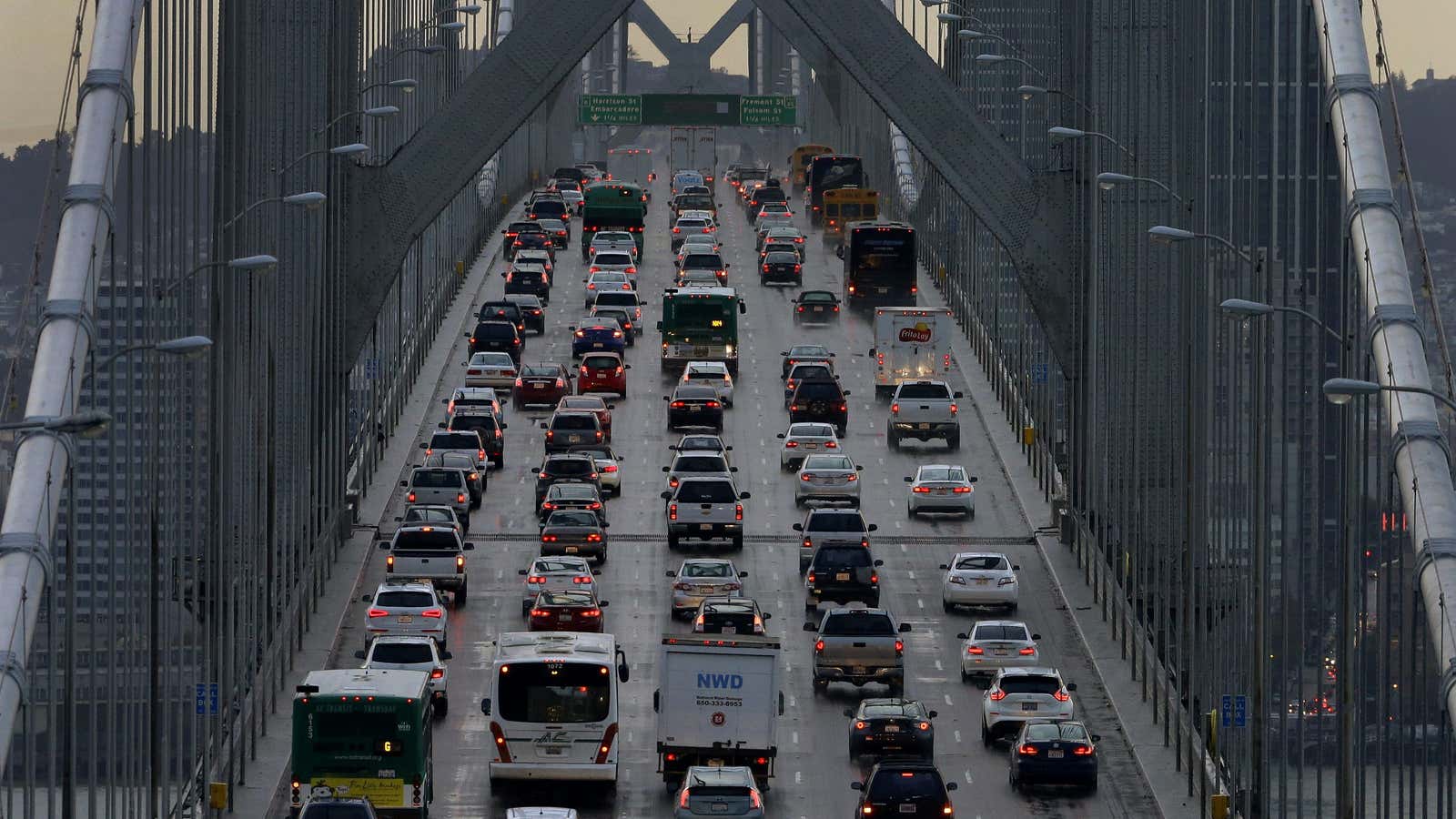Secretive negotiations between California regulators and four major automakers resulted in a recent agreement to make cars that meet much stricter fuel-efficiency standards than the Trump administration plans to impose, the Washington Post reports.
Honda, Ford, BMW, and Volkswagen, which collectively represent 30% of the US auto industry, agreed to standards that require them to make vehicles that get 51 miles per gallon by 2026. The Trump administration said it intends to set the standard at about 37 miles per gallon, by rolling back Obama-era rules.
As the New York Times notes, the oil and gas industry lobbied hard for those rollbacks—stricter standards would cut into their profits by reducing the amount of gasoline a driver might need to buy. Automakers had also lobbied for rollbacks, but “have since grown alarmed” by the scope of them, according to the Times.
The Obama administration rules would have set the requirements at 54.5 miles per gallon by 2025, so the newly negotiated deal still falls short of that.
When the Trump administration announced its intention to roll back the Obama standards, California and 13 states vowed to hold the industry to stricter rules, which would potentially force the industry to make different cars for different segments of the market. Last month, 17 car companies sent Trump a letter warning that weakening standards could destabilize their industry.
The Trump administration has signaled it will try to challenge California’s ability to set stricter standards than the federal government.
Meanwhile, a state bill introduced this week in California’s senate takes aim at a loophole that results in particularly dirty diesel emissions from heavy-duty trucks. Right now, large trucks like semis aren’t required to be checked to see if they meet emissions standards over the long term. The state’s Senate Bill 210 would prohibit “the operation of a heavy-duty vehicle in a manner resulting in the escape of visible smoke,” which is a common problem among large trucks.
